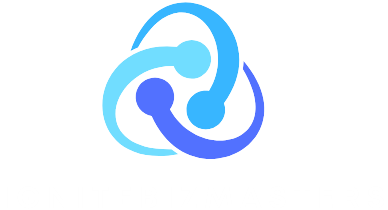Table of Contents
ToggleBlogging isn’t just for cat videos and food pics anymore—it’s a powerful way to share ideas and connect with like-minded folks. Whether you’re a wannabe influencer or just want to document your thoughts, learning how to blog can turn your passion into a platform. Imagine your words reaching thousands, all while you sip coffee in your pajamas. Sounds dreamy, right?
Understanding Blogging
Blogging serves as a pivotal medium for self-expression and idea sharing. It connects individuals while providing a unique platform to document thoughts and experiences.
What Is Blogging?
Blogging refers to the act of creating and maintaining an online journal or website. Individuals share articles, insights, and updates about various topics, ranging from personal experiences to niche subjects. Platforms like WordPress and Blogger facilitate this process by allowing users to publish content with ease. Originally focused on casual content, blogging has evolved into a professional outlet where voices can reach vast audiences. Many use these platforms to engage with specific communities and foster meaningful discussions.
Benefits of Blogging
Blogging offers numerous advantages that can enhance personal and professional growth. Increased online visibility stands out among its key benefits, as it allows individuals to showcase their expertise. Building a community around shared interests fosters connections among like-minded people. Additionally, blogs can serve as a source of income through advertising and affiliate marketing. Regular blogging hones writing skills and encourages discipline, making it an effective tool for improvement. Overall, embracing blogging presents opportunities for various personal and business endeavors.
Choosing Your Niche

Selecting a specific niche forms the foundation of a successful blog. It allows for a focused approach, helping to attract a dedicated audience.
Identifying Your Passion
Understanding personal interests guides niche selection. Passion fuels consistent content creation, ensuring engagement and motivation. Some popular topics include travel, health, technology, and personal finance. Consider hobbies or areas of expertise that excite and inspire. Reflect on what drives curiosity, as this leads to sustained enthusiasm in writing. Ultimately, strong passion translates into authentic and relatable content.
Researching Your Audience
Analyzing potential readers helps refine niche choices. Tools like Google Trends and social media insights reveal popular topics and audience interests. Identifying specific demographics aids in tailoring content effectively. Engaging with readers through comments or surveys deepens understanding of their preferences. Additionally, examining competitors sheds light on gaps within existing blogs. Targeting unmet needs fosters unique positioning in the blogging landscape. Ultimately, a clear grasp of audience expectations enhances relevance and connection.
Setting Up Your Blog
Establishing a blog involves critical steps that ensure a strong foundation. These steps help create a successful online presence.
Selecting a Blogging Platform
The blogging platform serves as the backbone for any blog. WordPress, Blogger, and Wix are popular options. WordPress offers extensive customization options while Blogger provides ease of use. Wix focuses on visual design, ideal for those emphasizing aesthetics. Look for features like responsive design, SEO capabilities, and analytics tools. Stability and support should also factor into the decision. Understanding the technical requirements and the learning curve associated with each platform will aid in making an informed choice.
Choosing a Domain Name
A strong domain name enhances brand identity. Domain names should be memorable and reflect the blog’s content. Aim for simplicity and clarity, avoiding complex spellings or excessive characters. Popular domain registrars like GoDaddy and Namecheap offer numerous options. Consider incorporating keywords related to the blog niche for improved searchability. Shorter names tend to resonate better, aiding recall. Checking social media availability for the name can provide cohesive branding across platforms. A strategic domain name choice lays the groundwork for future growth and recognition.
Creating Quality Content
Creating quality content involves understanding the audience and delivering value through each blog post. Engaging and informative articles foster reader loyalty and encourage sharing.
Crafting Engaging Posts
Craft posts that resonate with readers by focusing on their interests and challenges. Use a strong, attention-grabbing title to draw readers in. Incorporate personal anecdotes or case studies to create relatability. Apply a clear structure with headings and lists to enhance readability. Include a call to action to encourage interaction, prompting comments or shares. Break up lengthy paragraphs to maintain visual interest. Employ storytelling techniques to create a connection with the audience. Always proofread and edit for clarity, ensuring a polished and professional finish.
Importance of Visuals
Visuals enhance content by breaking up text and providing context. Images, infographics, and videos capture attention and improve retention. Utilize high-quality visuals relevant to the topic, as they support the overall message. Consistent branding in visuals reinforces identity and strengthens audience recognition. Use alt text to improve search engine optimization and accessibility. Remember, platforms like Canva and Unsplash offer tools and resources for professional-quality visuals. Incorporating visuals leads to a more engaging experience, increasing the likelihood of shares and interactions.
Promoting Your Blog
Promoting a blog requires strategic efforts to reach a wider audience and drive engagement.
Utilizing Social Media
Social media platforms offer powerful tools for promoting blogs. Choosing the right platform depends on the target audience; for example, Instagram suits visual content while Twitter accommodates brief updates. Bloggers should create shareable content that resonates with followers, encouraging them to spread the word. Engaging with audiences through comments, shares, and direct messages fosters community and builds loyalty. Analytics tools help measure the performance of posts, allowing adjustments for future campaigns. Collaborating with influencers extends reach further by tapping into their established audiences. Consistency in posting schedules cultivates anticipation and keeps followers engaged.
Building an Email List
Building an email list enhances direct communication with readers. Encouraging visitors to subscribe increases the chances of repeat engagement. Offering incentives, like exclusive content or freebies, boosts sign-up rates. Using effective sign-up forms on the blog ensures easy access for readers. Crafting personalized and valuable newsletters keeps subscribers informed and connected. Regularly updating the list by removing inactive subscribers maintains its health and relevance. Tracking open and click-through rates helps refine email strategies based on reader behavior. This targeted approach to email marketing leads to increased interaction and loyalty.
Monetizing Your Blog
Blogging can generate income through various methods. Exploring revenue streams enhances the potential for financial gain.
Different Revenue Streams
Ad placement offers a straightforward way to monetize. Display ads through networks like Google AdSense can create passive income. Affiliate marketing allows bloggers to earn commissions by promoting products or services relevant to their audience. Sponsored posts present another option, with brands paying for content that features their offerings. Selling digital products, such as e-books or online courses, gives bloggers a chance to leverage their expertise. Subscription models can also work; platforms like Patreon facilitate monthly recurring income from dedicated readers. Creating merchandise allows for brand expansion, with bloggers selling items that reflect their identity.
Tips for Success
Focusing on audience engagement is vital for success. Bloggers must understand reader preferences and consistently deliver valuable content that resonates. Building trust through authenticity creates a loyal community. Promoting content across social media channels amplifies reach, aligning with the target audience. Regularly analyzing site metrics provides insights for optimizing strategies. Networking with other bloggers can foster collaborations and enhance visibility. Maintaining quality over quantity ensures that content remains relevant and engaging, encouraging shares and interactions. Setting clear goals helps track progress and adapt monetization plans effectively.
Blogging offers a unique opportunity for individuals to express themselves and connect with a broader audience. By choosing a niche that resonates with personal passions and understanding reader interests, bloggers can create meaningful content that fosters engagement.
Setting up a blog with the right platform and a memorable domain name lays the foundation for success. Quality content paired with effective promotion strategies can significantly increase visibility and interaction.
For those looking to monetize their efforts, understanding the audience and exploring various revenue streams can lead to sustainable growth. With dedication and creativity, anyone can harness the power of blogging to achieve personal and professional goals.



